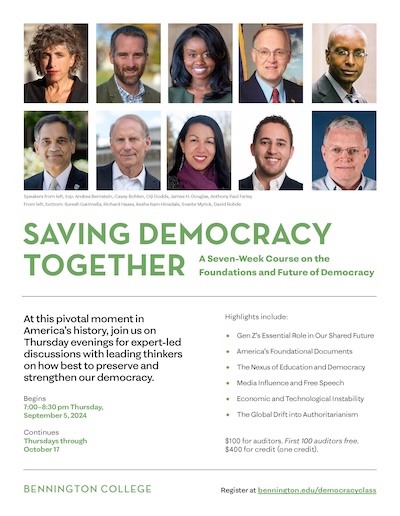
Saving Democracy Together
A Seven-Week Course on the Foundations and Future of Democracy
A part of the Senator Patrick J. Leahy Public Policy Forum
At this pivotal moment in America's history, join us on Thursday evenings for expert-led discussions with leading thinkers on how best to preserve and strengthen our democracy.
Highlights include:
- Gen Z's Essential Role in Our Shared Future
- America's Foundational Documents
- The Nexus of Education and Democracy
- Media Influence and Free Speech
- Economic and Technological Instability
- The Global Drift into Authoritarianism
Course Description
Almost a century ago, Franklin D. Roosevelt alerted Americans to the impending global conflict pitting democracies founded on individual liberty against rising fascist dictatorships pursuing “final solutions.” Drawing inspiration from John Dewey’s progressive philosophy, FDR emphasized, "In this conflict the part which education plays in each ideology is crucial. Democracy cannot succeed unless those who express their choice are prepared to choose wisely." This course examines the building blocks and animating principles of representative democracy. We focus on education as the bedrock of an informed citizenry that champions the principles and freedoms at the heart of American democracy.
Time
Begins 7:00–8:30 pm Thursday, September 5, 2024. Continues Thursdays through October 17.
Location
In-person attendance for Bennington College students and the local community will be in the CAPA Symposium space on Bennington College campus. The class is also being offered online via Zoom.
Registration
- Registration is closed.
- Videos of past sessions are linked below.
Share the Flier
Download and share the class flyer with your friends.
Speakers Schedule & Recordings
Expand the sections below to read a course overview for each week. Recordings of each session will also be posted below.
Week 1 (9/5): “Civic Education, Gen Zers, and the Future of Democracy”
Join us in welcoming Dr. Richard Haass, who brings his deep experience as a diplomat and scholar, to discuss the pivotal role of civic education in equipping Gen Zers with tools to navigate the complexities of democracy amid global challenges.
Watch the recording of Week 1: Civic Education, Gen Zers, and the Future of Democracy.
Week 2 (9/12): “Knowing History to Counteract Fake History”
This week, historian Casey Bohlen guides us through the landscape of historical narratives, examining how they are constructed and the impact of their manipulation on public discourse.
Watch the recording of Week 2: Knowing History to Counteract Fake History.
Week 3 (9/19): “Gen Zers, Democracy, and Building a Future Together”
Join Svante Myrick and a dynamic panel of Bennington College voices as they delve into political activism and digital innovation. Discover how these Gen Z leaders are redefining the boundaries of civic engagement and fostering an inclusive democratic future.
Watch the recording of Week 3: Gen Zers, Democracy, and Building a Future Together.
Week 4 (9/26): “Higher Education, Civil Discourse, and Our Democracy”
This week features Laurie L. Patton, President of Middlebury College, as we explore the vital role of higher education in promoting civil discourse and democracy. Topics include current initiatives shaping the next generation of democratic leaders and the enduring ideals and realities of dialogue in academia.
Watch the recording of Week 4: Higher Education, Civil Discourse, and Our Democracy.
Week 5 (10/3): “The Courts, the Rule of Law, and Preserving Democracy”
Join Albany Law School experts Anthony Farley and Ciji Dodds in critically analyzing the judiciary's role in upholding the rule of law amidst global and domestic challenges.
Watch the recording of Week 5: The Courts, the Rule of Law, and Preserving Democracy.
Week 6 (10/10): “Political Parties and Democracy”
This week, we explore the evolving landscape of U.S. political parties with Vermont State Senator Kesha Ram Hinsdale and former Governor Jim Douglas. This discussion will cover the historical tensions and potential transformations within the two-party system as it faces new pressures.
Watch the recording of Week 6: Political Parties and Democracy.
Week 7 (10/17): "Special Program on Media, Democracy, and the Rule of Law"
In our final session, we welcome journalists Andrea Bernstein and David Rohde, and NYU Law Professor Andrew Weissmann to help us explore the responsibilities and challenges faced by the media in maintaining integrity and supporting democracy in a polarized age.
Watch the recording of Week 7: Special Program on Media, Democracy, and the Rule of Law.
Speaker Bios
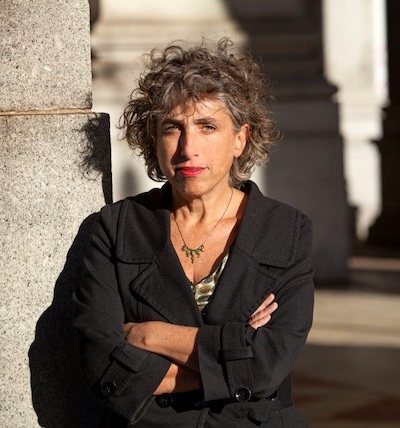
Andrea Bernstein is a Fall 2024 Presidential Fellow at Bennington College, teaching the course Campaign Coverage in an Age of Disinformation. A Peabody and duPont Columbia award-winning journalist, Andrea Bernstein is the author of the New York Times best-selling book American Oligarchs: The Kushners, the Trumps and the Marriage of Money and Power. She co-hosted the podcasts "We Don't Talk About Leonard," "Will Be Wild" (which hit #1 on Apple), and "Trump, Inc." She covered the five trials against Donald Trump and his company in New York for NPR, and previously worked at New York Public Radio, where she investigated government and politics, including six presidential elections. She has taught journalism at Hunter College and City College, and trained journalists in Bhutan how to cover that nation's first-ever presidential election. Photo credit: Matthew Septimus.
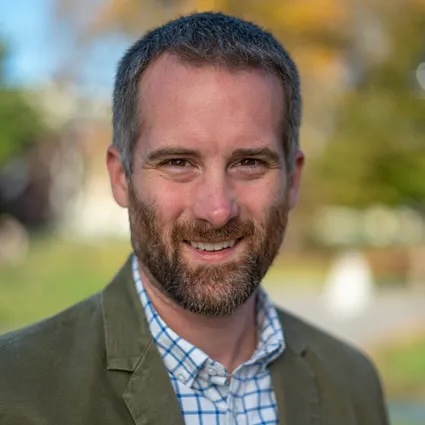
Casey Bohlen is the Mellon Visiting Assistant Professor in History and Public Discourse at Smith College. He specializes in the history of religion and public life in the modern United States, with broader interests in the history of American social thought, capitalism, and political movements.
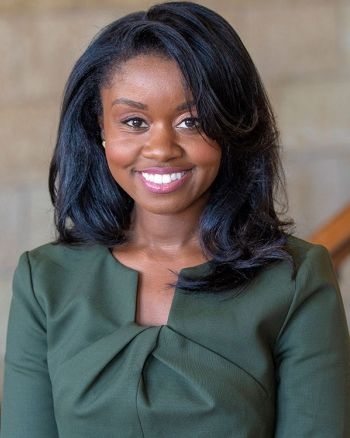
Ciji Dodds’ scholarship exposes hidden structures within the law and how they sustain domestic and international systems of white supremacy. Specifically, she interrogates the degree to which the law retains vestiges of slavery, colonialism, and imperialism. Ciji’s scholarly objectives are to produce a body of work composed of novel legal frameworks and to challenge the legal academy’s traditional understandings of scholarship.
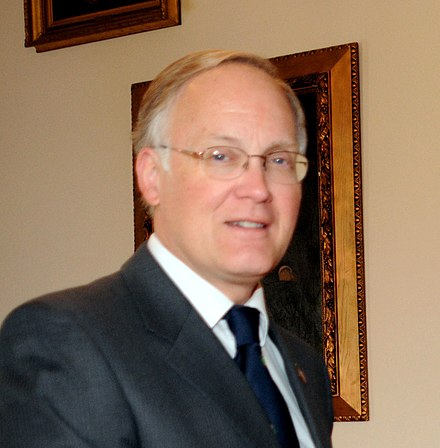
James H. Douglas is an American politician from the state of Vermont. A Republican, he served as the 80th governor of Vermont from 2003 to 2011. He is an executive in residence at Middlebury College. Douglas currently serves on the Governors’ Council of the Bipartisan Policy Center in Washington, DC.
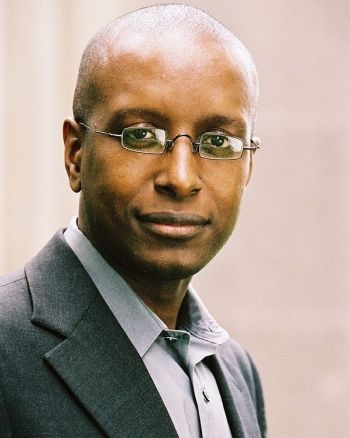
Anthony Paul Farley is a professor at Albany Law School. He has taught at Rutgers, Texas Southern University, and the University of Kentucky, among others. Farley’s recent essays have appeared in Anti-blackness (Jung & Costa Vargas eds., Duke: 2021), Hamilton & the Law (Tucker ed., Cornell: 2020); The Washington Post (2018), and elsewhere.
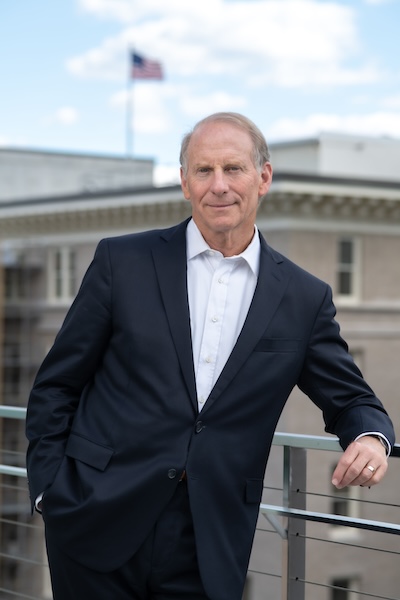
Dr. Richard Haass, a veteran diplomat and respected international relations scholar, is president emeritus of the Council on Foreign Relations (CFR) after serving as CFR’s president for twenty years. He is the author of The Bill of Obligations and a senior counselor with Centerview Partners, an international investment banking advisory firm.
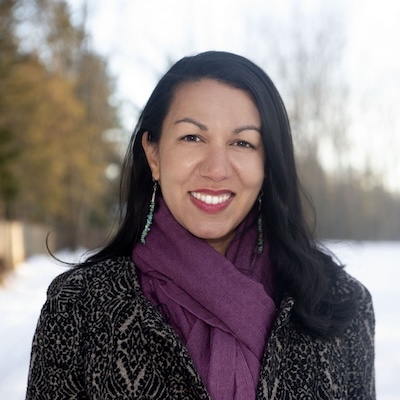
Kesha Ram Hinsdale is the first woman of color to serve in the Vermont State Senate and is chair of the Senate Economic Development, Housing & General Affairs Committee. Kesha teaches Structural Inequality and Environmental Justice at Vermont Law & Graduate School.
Svante Myrick is the president of People For the American Way. He is one of the most dynamic young, progressive Black leaders today. Myrick garnered national media attention as the youngest-ever mayor of Ithaca, New York, where he was a leading reformer on drug policy, the environment, and public safety.
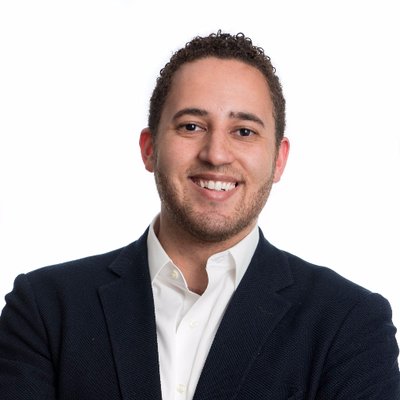
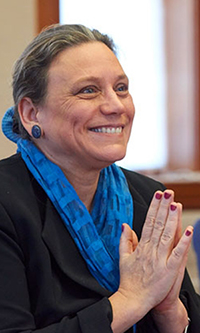
Laurie L. Patton is the 17th president of Middlebury, and the first woman to lead the institution in its 222-year history. Patton joined Middlebury in 2015 after serving as dean of Duke University’s Trinity College of Arts and Sciences and as the Robert F. Durden Professor of Religion. In her inaugural address, Patton described a vision of a Middlebury that would actively engage with the most challenging issues facing society and challenged the community “to have more and better arguments, with greater respect, stronger resilience, and deeper wisdom.”
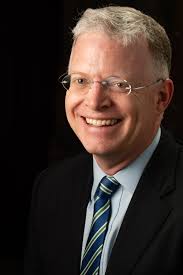
David Rohde is the national security editor at NBC News and a former executive editor of The New Yorker's website. A two-time winner of the Pulitzer Prize, he is a former foreign correspondent and investigative reporter for the New York Times, Reuters and the Christian Science Monitor who covered the wars in Afghanistan, Pakistan and Bosnia. He is the author of five books, including Where Tyranny Begins: The Justice Department, the FBI, and the War on Democracy, and A Rope and A Prayer: The Story of a Kidnapping, about his capture by the Taliban. His new book was reviewed in the New York Times, and he spoke about it recently on NPR.
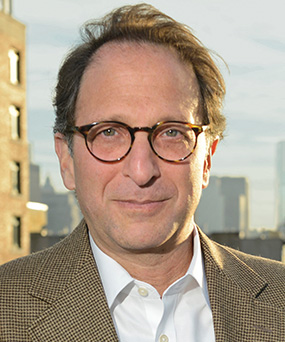
Andrew Weissmann is a Professor of Practice at NYU Law School. He teaches courses in national security and criminal procedure. Andrew served as a lead prosecutor in Robert S. Mueller’s Special Counsel’s Office (2017–19) and as Chief of the Fraud Section in the Department of Justice (2015–2019). From 2011 to 2013, Weissmann served as the General Counsel for the Federal Bureau of Investigation. Andrew is the co-host of the popular podcast Prosecuting Donald Trump and is a frequent legal analyst for NBC/MSNBC. He serves on the board of Just Security and writes frequently for it, The New York Times, The Atlantic, and The Washington Post. His memoir about the Special Counsel investigation, Where Law Ends: Inside the Mueller Investigation, was a New York Times bestseller.
Student and Alumni Bios
Bennington students and alumni and others will share their experiences in their countries and bring the consequences of failed democracy into sharp focus for participants.
Abraar Arpon ’26 is an Endeavor Foundation Environmental Action Fellow and Davis Project for Peace honoree. He has been at the forefront of creating websites that enhance accessibility and civic engagement, including MyBallot.info, a comprehensive voter information hub, and AudioCane, which fosters inclusivity in education for visually challenged students.
Paige Colby ‘25 is a senior at Bennington College studying philosophy, gender studies, and education reform. She was previously a member of the Student Council for two years where she served on the College’s Long Term Working Group for Free Expression. She is currently involved on campus as a House Chair, First-Year Forum Co-Leader, and President of Bennington’s Planned Parenthood Generation Action Chapter.
Isabella Ramírez is a rising senior at Columbia University studying sociology. She serves as the 148th Editor in Chief and President of the Columbia Daily Spectator, where she helmed the newspaper’s coverage of protests over the war in Gaza and led a collaboration with New York Magazine. She has worked as a breaking news intern at POLITICO and a social media editor at The Daily Beast. In the fall, Isabella will join NBC News’ politics team as an academic year intern.
Marta Shcharbakova ’23 is a Belarusian, San Francisco-based artist and educator. She earned her Bachelor of Arts degree at Bennington College in 2023, and is currently working in the New Village School as a music, art and “Classroom Without Walls" teacher in Sausalito, CA.
Samuel De Sousa, a recent Bennington College graduate from Venezuela, has a strong passion for organized civil society, public action, and theater. They are currently working as a production assistant at the Pregones / Puerto Rican Traveling Theater in New York City and interning with the international non-profit organization Partners of the Americas.
The class is part of the Center for the Advancement of Public Action’s Activating Democracy programs.
